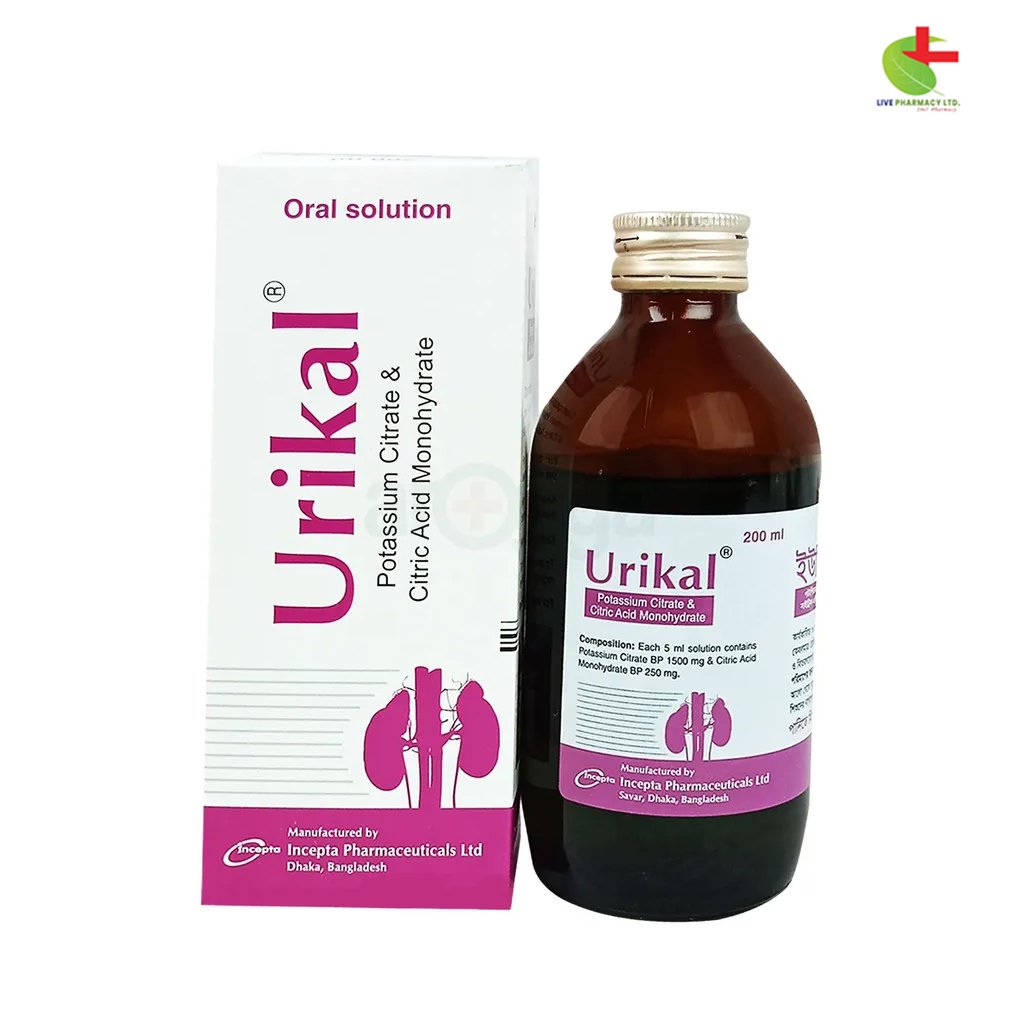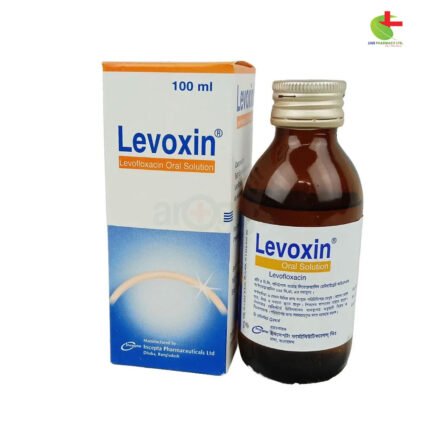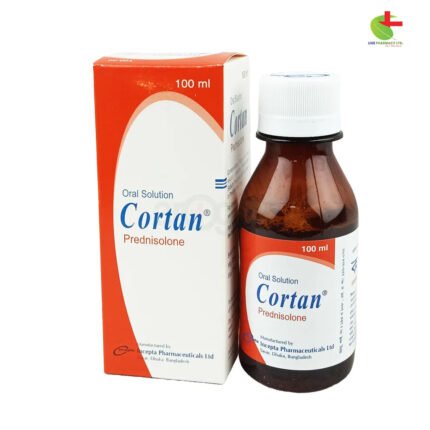Urikal 200ml
200.00৳ Bottle (100ml)
- Urikal is an effective oral solution containing Potassium Citrate and Citric Acid, designed to relieve discomfort from urinary tract infections and prevent kidney stones.
- It acts as a systemic alkalizer without causing gastric disturbances and is well-tolerated even with long-term use.
- Recommended for adults and children, Urikal is crucial in managing acidosis related to kidney diseases and in conjunction with uricosuric agents for gout prevention.
- Always consult a registered physician before use for personalized dosage and safety.
 Brand
Brand
|
Incepta Pharmaceuticals Ltd |
|---|---|
 Generics
Generics
|
Potassium Citrate + Citric Acid |
 Type
Type
|
Oral Solution |
Indications
Urikal is recommended for the following conditions:
- Relief of discomfort associated with urinary tract infections (UTIs)
- Prevention of kidney stones
- Use alongside uricosuric agents to prevent gout
- Management of acidosis resulting from kidney diseases
Always consult a registered physician before taking any medication.
Pharmacology
Urikal contains a blend of Potassium Citrate and Citric Acid in an oral solution, designed as a stable and pleasant-tasting systemic alkalizer. Upon absorption, Potassium Citrate is converted to Potassium Bicarbonate, functioning as a systemic alkalizer. This formulation effectively alkalinizes urine without inducing systemic alkalosis at recommended doses. It is highly palatable and well-tolerated, even with extended use. Additionally, Potassium Citrate does not interfere with gastric juices or digestion.
Dosage & Administration
For relief from urinary tract infections:
- Adults and children over 6 years: Take 10 ml three times daily, diluted in one glass of water.
- Children aged 1-6 years: Take 5 ml three times daily, diluted in half a glass of water.
To prevent kidney stones, gout (in conjunction with uricosuric agents), and manage acidosis due to kidney conditions:
- Adults: 10-15 ml four times daily (or as directed by a physician), diluted in one glass of water.
- Pediatric patients: 5-10 ml four times daily (or as directed by a physician), diluted in half a glass of water.
Always consult a registered physician before taking any medication.
Interactions
Concurrent use of potassium-containing medications, potassium-sparing diuretics, angiotensin-converting enzyme (ACE) inhibitors, or cardiac glycosides may increase the risk of toxicity.
Contraindications
Urikal should not be used in patients with severe renal impairment, oliguria, azotemia, untreated Addison’s disease, acute dehydration, severe myocardial damage, or hyperkalemia of any origin.
Side Effects
This solution is typically well tolerated and does not cause significant side effects when taken at recommended doses by patients with normal renal function and urinary output. However, caution is advised for individuals with abnormal renal function to prevent hyperkalemia or alkalosis. Symptoms of potassium intoxication may include lethargy, weakness, mental confusion, tingling sensations in extremities, and other manifestations linked to elevated serum potassium levels.
Pregnancy & Lactation
Currently, there is no available data regarding the use of Urikal during pregnancy or lactation.
Precautions & Warnings
Use this solution cautiously in patients with low urinary output. Ensure it is adequately diluted with water to reduce the risk of gastrointestinal injury associated with concentrated potassium salt preparations; ideally, take each dose after meals. High doses may lead to hyperkalemia and alkalosis, particularly in patients with renal disease.
Overdose Effects
In individuals with normal potassium excretion mechanisms, oral potassium salts rarely cause serious hyperkalemia. However, in patients with impaired excretory functions, hyperkalemia can occur. Immediate treatment is essential if hyperkalemia is detected, as it can reach lethal levels within hours. Management includes:
- Removing potassium-containing foods and medications from the diet.
- Administering intravenous dextrose solution (10-25%) at a rate of 300-500 ml/hr, containing 10 units of insulin per 20 grams of dextrose.
- Utilizing exchange resins, hemodialysis, or peritoneal dialysis as necessary.
Therapeutic Class
- Prevention of recurrent kidney stone formation
- Urinary alkalinizing agent
Storage Conditions
Store below 30°C, protected from light and moisture. Keep out of reach of children.













Reviews
There are no reviews yet.